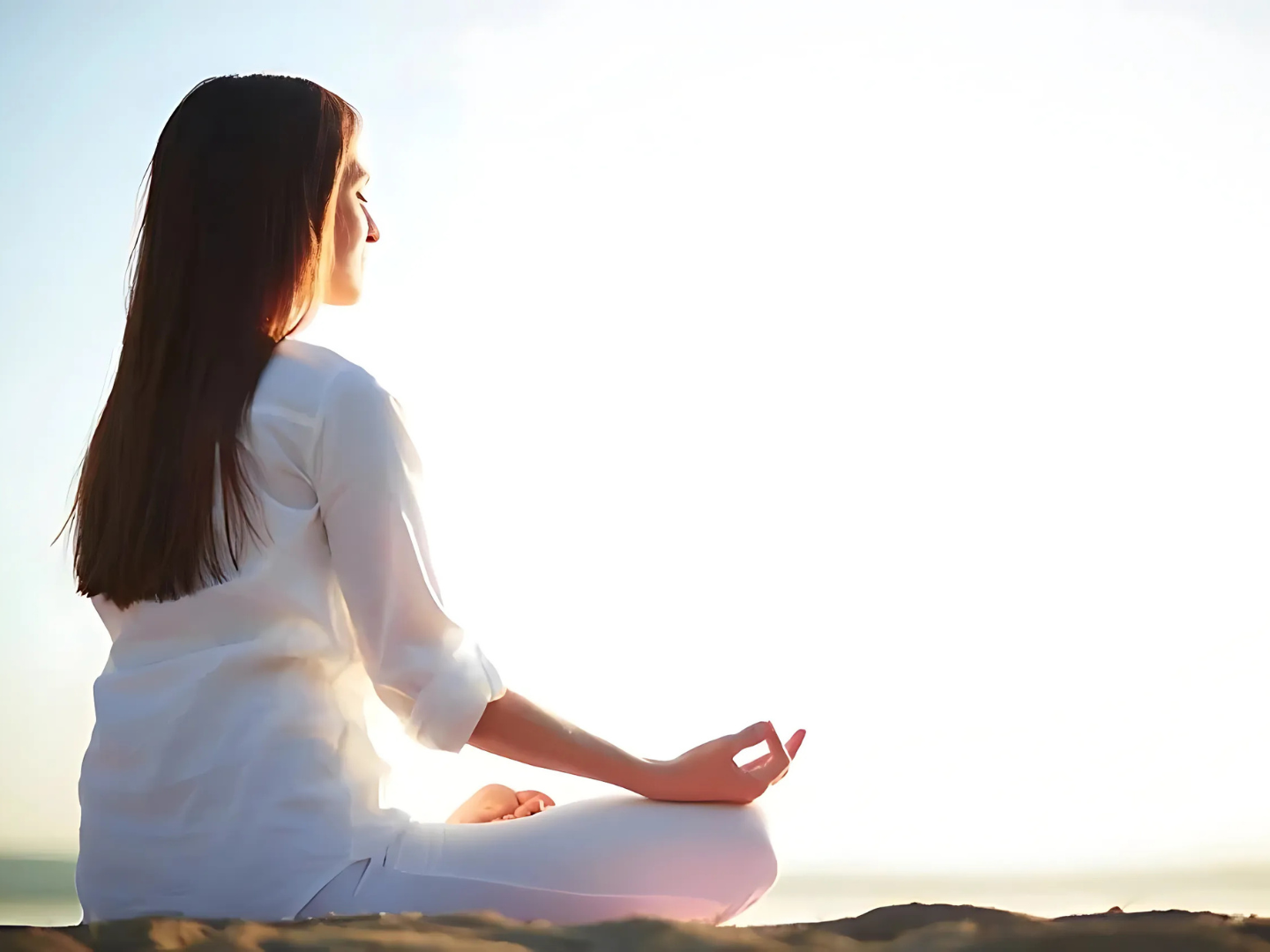Meditation is not an activity but a transformative experience: it is a journey that leads man beyond the superficial layers of his thoughts and emotions to peace and self-awareness. Unless we go deeper than its appearance, we can never fully understand meditation. Meditation is connecting with our true selves, and discovering who we are beyond the distractions of the mind and ego. It is the art of stopping the mind, finding that quiet space where we can listen to our inner voice and experience the world from a place of deep inner peace.

A Brief Look at Meditation’s Origins
From time immemorial, this is a spiritual practice where most people have their roots dating thousands of years back and even way before that. One could trace its origin down the line to the Indian or the Hindu, Buddhist, or Taoist traditions which originally aimed at higher consciousness or spiritual awakening. Generally in India, meditation is in conjunction with moksha, or liberation, in Buddhism, it is fundamental for Nirvana, where cessation of suffering is realized. It wasn’t just a way of relaxing; it is and continues to be, a sacred method for attaining spiritual enlightenment and deeper connections with the divine.
It began in the distant past but continues to be today, as meditation is still a key practice of millions around the world. It has evolved into several techniques that reflect both ancient wisdom and modern understanding but the core purpose—attuning us to our highest selves and the universe—remains unchanged.
Quieting The Mind With The Power Of Meditation
One of the main elements of meditation is quieting the mind. Our minds are filled with thoughts, distractions, and worries that keep us from truly experiencing the present moment. Meditation helps break us out of this cycle of constant mental noise. Focusing our attention on our breath, a mantra, or simply observing our thoughts without judgment helps us gradually quiet the mind.
It is not easy to silence the mind initially. Thoughts will come, and the mind may even resist the stillness. But with time and patience, consistent practice will let the chatter of the mind slow down. This is not the absence of thought but the awareness of thought without attachment to it. It is like standing by the lake shore watching waves come and go, yet not getting caught in the wave motion. The more we practice this, we come to realize that our thoughts are not who we are. We are the observer, not the thinker. That is where the actual spiritual growth begins.
Meditation as Gateway to Consciousness
As we start to quiet the mind, we open ourselves up to higher states of consciousness. This is where the true value of meditation in spiritual development comes in. As the mind quiets, we hear more clearly what is happening at this moment and are more alert to our thoughts and emotions, allowing us to step beyond the limitations of the ego and see the deeper truth of life.
In this enlarged state of consciousness, we become aware that we are not the sum of our bodies, our minds, or our circumstances. We are not limited to our past mistakes or our future fears. Meditating helps us look beyond life’s surface and find the deep, eternal truth: we are connected to everything and everyone around us. This understanding connects us to the universe, to the divine, and our true self.
Meditation is a mirror of our innermost thoughts, feelings, and desires. It gives us an awareness of what no longer serves us and the patterns that keep us from growing. As we observe the mind without judgment, we begin to break free from those negative mental patterns that hold us back. This awareness is the first step toward enlightenment.
The Divine Connection
The closer we get to our true selves by continuing with our meditation practice, the more we begin to realize that we are not just our body or our mind; we are spiritual beings connected to a higher consciousness. Through regular meditation, we transcend the limitations of the ego and step into the realization that we are part of something much greater than ourselves.
In connecting the divine presence both within and outside of us, meditation proves to be our connection source. Whether referred to as God, the Universe, or the Divine Consciousness, meditation allows access to the higher power, and in this space, we get peace, love, and bliss, we experience knowing that everything within creation interrelates, thus giving deep inner peace.
When we feel this connection, we know our purpose is not to get by in life, but rather to give back to life, to love, to create, and to spiritually grow. Through meditation, we can connect with our purpose and live in harmony with our higher self.
Eternal Peace: The Ultimate Goal of Meditation
The final destination of meditation is the eternally abiding peace—peace independent of conditions and rooted deep from within. Such a profound sense of deep calm happens if we become attuned to our authentic self as well as divine consciousness. And it is exactly this stage about which so many religious practices speak—the enlightened stage of a human being.
Peace Eternal is not achieved at any point in time and one forgets afterwards. It is a state of being that we cultivate through consistent practice. As we meditate and connect with our true selves, we experience moments of peace that gradually become more constant. This peace grows stronger as we release attachment to worldly desires and the distractions of the mind. It is the natural state of the soul—unaffected by the chaos of the world. When we attain this peace, we are in the state of Satchitananda—a state of being of truth, consciousness, and bliss.
Eternal peace is not avoiding life’s challenges, nor is it the suppression of emotions. It is rather approaching life detached, untouched by the ups and downs of the world. It is the understanding that at our core we are eternal, unchanging, and always connected to the divine.
Meditation as a Way of Life
Meditation is not something that happens once or for a short period. It is a lifelong practice that changes with us. In the beginning, meditation can be difficult or frustrating because the mind does not want to settle down. But as time and patience pass, the benefits of meditation become more apparent. The peace and clarity that meditation brings will begin to influence all areas of your life, from relationships to work to your overall well-being.
By the constant practice of meditation in daily life, we become conscious of all our thoughts, activities, and emotions. We learn to live with more intention by choosing things that suit our purpose in life. Along the path, meditation becomes part of one’s daily routine in living, keeping one balanced and connected to inner peace.
This meditation practice teaches us to transition through life in the most elegant of manners even in times of turmoil. It keeps the calm within the storm so that life’s ups and downs can be met by wisdom and compassion. As such, meditation is only the first step toward realizing potential and making life a profoundly spiritual affair.
Stay tuned to inspire4ward for more updates.



